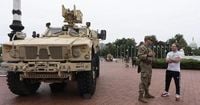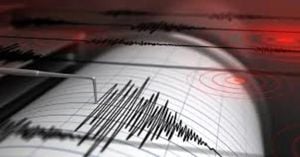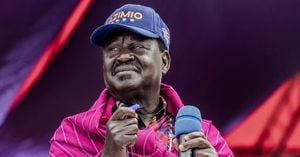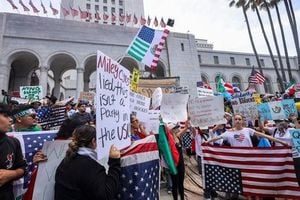On a sweltering August morning in Washington, D.C., the sight of National Guard troops standing sentinel outside Union Station would have seemed unimaginable just a few years ago. But as of August 2025, the nation’s capital is the epicenter of a political clash over public safety, federal authority, and the limits of presidential power—one that’s reverberating far beyond D.C.’s city limits.
President Donald Trump’s decision to declare a crime emergency in Washington, D.C., on August 11, 2025, took many by surprise, especially given that the city’s violent crime rates had recently plunged to their lowest levels in decades. According to a Washington Post-Schar School poll, 79 percent of Washingtonians opposed the deployment of federal law enforcement and National Guard troops, with 69 percent expressing strong opposition. The move, which Trump justified by citing what he described as rampant crime and chaos, has been met with harsh criticism from local officials and residents alike, who have responded with everything from public protests to hurled hoagies at patrolling guardsmen.
Despite the backlash, Trump pressed forward, deploying 800 members of the D.C. National Guard. The show of force was quickly amplified when six Republican governors—hailing from West Virginia, South Carolina, Ohio, Louisiana, Mississippi, and Tennessee—volunteered hundreds of their own guardsmen to join the effort. Mayor Muriel E. Bowser, a Democrat, voiced her frustration, stating that sending troops from other states “doesn’t make sense,” but she acknowledged that the district has little power to stop them. Her concerns highlight a long-standing tension over D.C.’s limited autonomy, an issue that has only intensified under the current circumstances.
The political calculus behind these deployments has not gone unnoticed. Critics have pointed out the irony that many of the states sending troops to D.C. have cities with far higher murder rates than the capital itself. According to a Democracy Docket analysis of the FBI’s 2024 Crime in the United States Annual Report, 53 cities across Louisiana, Mississippi, Ohio, South Carolina, Tennessee, and West Virginia had higher murder rates than Washington, D.C. Memphis, for instance, saw 2,501 violent crimes per 100,000 residents in 2024—more than double D.C.’s rate of 926. Its murder rate stood at a staggering 41 per 100,000 residents, compared to 26 in the capital. Even Shreveport, Louisiana, which is led by a Republican mayor, posted a murder rate of 27 per 100,000 and a violent crime rate of 1,228 per 100,000, both higher than D.C.
As Democracy Docket observed, “if D.C. is in the throes of a crime emergency worthy of a militarized response—and you have no concerns that response might backfire—then why aren’t the good people of Jackson, Mississippi or North Charleston, South Carolina” seeing similar interventions? It’s a question that has gone largely unanswered by the governors involved; spokespeople for Governors Jeff Landry (Louisiana), Tate Reeves (Mississippi), Henry McMaster (South Carolina), Bill Lee (Tennessee), and Patrick Morrisey (West Virginia) did not respond to requests for comment. Only Dan Tierney, spokesperson for Ohio Governor Mike DeWine, offered a statement emphasizing Ohio’s history of providing National Guard assistance to D.C. and other states upon request, citing past deployments for presidential inaugurations and natural disasters.
While violent crime and car thefts in D.C. did spike during the COVID-19 pandemic, those rates peaked in 2023. By 2024, violent crime had dropped by over a third—35 percent—mirroring a trend seen in cities nationwide, including Memphis. The deployment of troops, then, appears to many as an overreach rather than a necessary response to current conditions. Notably, the National Guardsmen, who were originally unarmed in keeping with past crowd control practices, are now reportedly set to begin carrying service weapons while on patrol—a development that has only heightened tensions in the city.
Legal challenges have swiftly followed. On August 21, 2025, the ACLU of West Virginia filed suit in state court to block Governor Morrisey from sending 300-400 Guard members to D.C., arguing that the deployment exceeds his constitutional and statutory authority. The lawsuit underscores the growing unease about the precedent being set—not just for D.C., but for the balance of power between states and the federal government across the country.
This debate is not confined to the capital. Just days after the D.C. deployment, Trump turned his attention to Chicago, threatening to send the National Guard there as well. Speaking from the Oval Office on August 22, he declared, “Chicago’s a mess, you have an incompetent mayor, grossly incompetent. We’ll straighten that one out, probably next, that will be our next one after this.” The president’s rhetoric has been consistent: he has repeatedly described major American cities with Democratic leadership, often with Black mayors and majority-minority populations, as dangerous and out of control.
Chicago’s leaders were quick to respond. Illinois Governor JB Pritzker accused Trump of “attempting to create chaos that distracts from his problems,” and argued that the administration was trying to “incite fear in our communities and destabilize existing public safety efforts.” Pritzker also pointed out that “crime rates are improving. Homicides are down by more than 30 percent in Chicago in the last year alone,” attributing the success to local partnerships and community programs.
Mayor Brandon Johnson echoed these sentiments, noting that the city had “not received any formal communication from the Trump administration regarding additional federal law enforcement or military deployments,” but warned that “unlawfully deploying the National Guard to Chicago has the potential to inflame tensions between residents and law enforcement.” Johnson emphasized that “the problem with the President’s approach is that it is uncoordinated, uncalled-for, and unsound,” citing reductions in homicides, robberies, and shootings as evidence of progress. He argued, “The National Guard will not alleviate the housing crisis … will not put food in the stomachs of the 1 in 4 children that go to bed hungry … [and] is no substitute for dedicated local law enforcement and community violence interrupters.”
Official data backs up the city’s claims. The Chicago Police Department’s July 2025 report showed homicides at their lowest level since 2014, with 44 murders reported that month. Part I crimes—including violent and property offenses—dropped 14 percent year-to-date and 18 percent month-to-month. Robberies fell 36 percent in July, and firearm-related robberies dropped by 46 percent compared to July 2024. Motor vehicle thefts and burglaries both saw significant declines, and vehicular hijackings were down 49 percent year-to-date. Police also recovered 1,190 firearms in July, averaging 38 per day.
Yet, even as Trump decries violence in cities like Chicago, his administration has slashed funding for gun violence prevention. In July, it cut more than half of federal funding for such programs, totaling $158 million in grants and affecting cities nationwide. The Justice Department terminated 69 community violence intervention grants in April, part of a broader halt to 365 grants worth $811 million. Mayor Johnson argued that if Trump truly wanted to help, he would restore the funding, stating, “There are many things the federal government could do to help us reduce crime and violence in Chicago, but sending in the military is not one of them.”
As this contentious saga unfolds, the country finds itself grappling with fundamental questions about who gets to control public safety, how best to address crime, and what role the federal government should play in local affairs. The answer, at least for now, appears far from settled.





